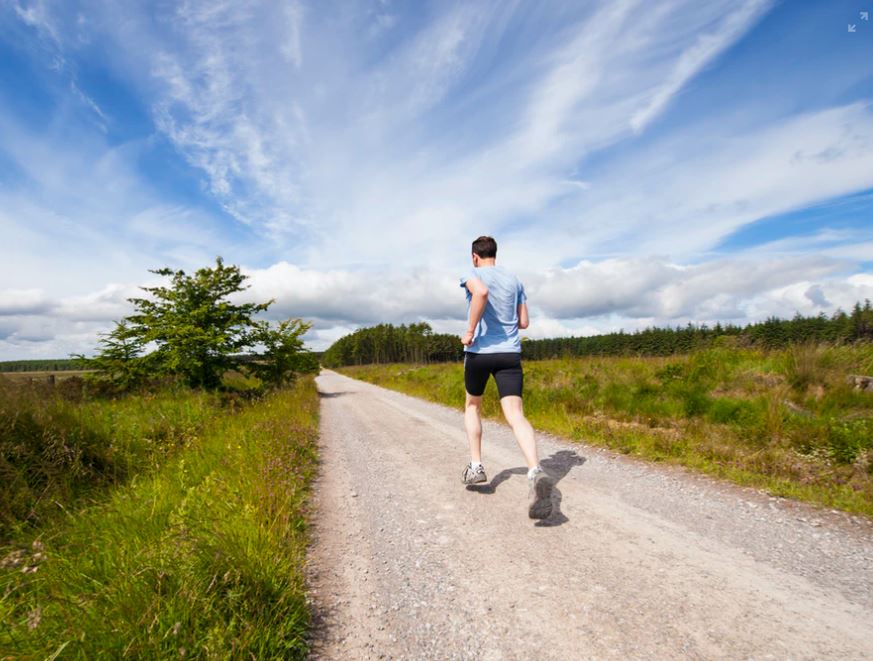
Did you know that over 200,000 new cases of prostate cancer are discovered each year and prostate cancer is responsible for 30,000 deaths annually? What about that fifty percent of men over 50 years old will develop benign prostate enlargement (BPH) and about eighty percent of men over 80 years old will have some sort of urinary issue attributed to BPH? Or that men of all ages can suffer from prostatitis?
It’s safe to say that prostate health should be at the forefront of men’s health, especially as they age and their bodies change. In order to keep your prostate health optimal, here are 10 diet and lifestyle tips that will support it.
Staying Active
What does working out have to do with your prostate, you might ask? It has been found that men who were physically active were less likely to develop BPH and that commonly participating in physical activity also helped prevent Erectile Dysfunction. Staying physically active has more effects on your prostate health than you might realize, so try to incorporate this into your daily life as much as you can.
Eat More Fruits and Veggies
While this one might seem pretty obvious, since it is the go-to health advice for just about any healthy lifestyle, there is proof that eating your fruits and vegetables can help your prostate health. Healthy eating can do a world of good for you in so many different categories but incorporating these foods into your weekly meals may have advantageous effects on your prostate health and can prevent you from getting prostate cancer.
Drink More Coffee
Now, this is a tip you probably haven’t heard before. Drinking four to five cups of coffee a day can “lower your chances of fatal and high-grade prostate cancer.” Depending on your other health requirements, that much coffee might not be ideal, but drinking any amount of coffee daily may support prostate health.
Stop Smoking
This is another tip that you’ve probably been told before if you smoke. Prostate cancer patients who smoke are more likely to have a recurrence of prostate cancer as compared to their non-smoking counterparts.
Drink More Green Tea
Much like drinking more coffee, green tea and its key ingredients have been found to have effects that reduce the risk of prostate cancer.
Eat Soybeans
Soybeans have also been found to reduce the risk of prostate cancer. You can eat isoflavones, which are the ingredient in soybeans that helps prevent prostate cancer by eating tofu, lentils, peanuts, chickpeas and alfalfa sprouts.
Get Tested
If you know that you have a first-degree relative who has suffered from prostate cancer, your chances of developing it yourself are higher and you might want to get tested.
Stay Hydrated
While this tip is good for your general health, hydration is seriously important when it comes to your prostate health.
Get Some Sun In
Vitamin D is important when it comes to your prostate health, so getting outside to get the natural Vitamin D from the sun can help a lot! Get your vitamin D levels checked as many are low and may need ongoing supplementation to maintain optimal Vitamin D levels.
Meet with Your Doctor
Before following these tips, you should always meet with your doctor to talk about your unique and individual prostate health.
About the Author:
Dr. Howard Tay, MD, Board Certified Urologist in Arizona certified by the American Board of Urology. He is an active member in the American Urological Association. He has practiced urology in Arizona since 1996. Dr. Tay is recognized as a leading Arizona urologists, including several Phoenix Magazine “Top Doc” awards for urology. He is an active member in advancing urology in the state of Arizona and serves on several hospital committees as is past Department Chair of Surgery at Banner Thunderbird Hospital. In addition to his practice, he is an educator training medical student and physician assistants in urology at Midwestern University, Northern Arizona University, and the University of Arizona Medical School-Phoenix Campus. In his spare time, Dr. Tay enjoys tennis, racquet ball and golf as well as target shooting, restoring classic cars and home improvement projects. He and his wife Christina love to travel now that they are “empty nesters.”
